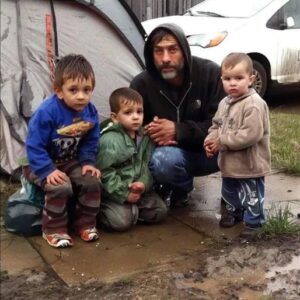On Tuesday, the Supreme Court declined to revive a lawsuit brought by 21 youth activists who argue that the federal government’s energy policies violate their constitutional rights by exacerbating climate change.
The Court’s denial of the petition in Juliana v. United States represents a significant setback for the youth-led climate lawsuit. Filed in 2015 by the nonprofit law firm Our Children’s Trust, the case has faced numerous challenges in lower courts. The group contended that the 9th Circuit wrongly directed an Oregon federal judge to dismiss the case and sought the Supreme Court’s intervention to reinstate their claim, the Washington Examiner
Washington Examine reported.
After years of litigation, the San Francisco-based 9th U.S. Circuit Court of Appeals ordered the dismissal of the case in 2020. In May, a three-judge panel from the 9th Circuit upheld the dismissal, effectively halting the plaintiffs’ efforts to continue the case, the outlet added.
The Our Children’s Trust (OCT) website states that its mission is to secure “legal rights to a safe climate” for younger generations. Despite the Supreme Court’s decision, Julia Olson, the plaintiffs’ attorney, stressed that the fundamental issue remains unresolved.
“The standing of children to be heard in their right to life case is a pressing issue of national importance,” she told Reuters in a statement.
The youth plaintiffs may still request a review by the Supreme Court, with the deadline for filing a certiorari petition set for December 9. This step would enable the activists to present broader arguments on why their case should be heard and why they believe they have standing to sue the federal government over its climate policies.
In Juliana, the plaintiffs argued that the federal government knowingly pursued policies that exacerbate climate change, despite the well-documented dangers of relying on fossil fuels. However, the 9th Circuit ultimately ruled that the judiciary was not the appropriate branch to address such a broad and complex issue.
This lawsuit is part of a larger movement of climate litigation led by youth activists, with several cases across the nation in which plaintiffs seek to hold state and federal governments accountable for policies they argue contribute to climate change. While some youth-led climate cases have faced setbacks, others have seen progress.
For instance, in 2023, a Montana judge ruled that the state was violating the rights of young residents by blocking the consideration of climate impacts for new fossil fuel projects. Additionally, Hawaii reached a groundbreaking settlement this year to decarbonize its transportation system by 2045, noted the Examiner.
The Supreme Court on Tuesday declined to hear an appeal from John Nassif, a Florida man convicted for his involvement in the January 6, 2021, attack on the Capitol.
Nassif challenged the constitutionality of a law that bans “parading, picketing, and demonstrating” inside the Capitol, arguing it violates the First Amendment’s protections of free speech and assembly. The charge is one of the most frequently applied to defendants from the January 6 attack.
President-elect Donald Trump is considering pardons for many involved in the Capitol riot.
The defendant, 57, was sentenced to seven months in prison after being convicted of multiple misdemeanors, including disorderly conduct and violent entry. Prosecutors had initially recommended a sentence of 10 to 16 months, the Washington Examiner reported.
Advertisement
Nassif’s public defenders argued that he entered the Capitol nearly an hour after it was breached and remained for less than 10 minutes, engaging in what they described as “core First Amendment expression” that was “in no way disruptive.”
Lower courts, including the U.S. Court of Appeals for the D.C. Circuit, rejected Nassif’s arguments. A three-judge panel ruled that the Capitol buildings are not a public forum open for protests, allowing the government to impose reasonable and viewpoint-neutral restrictions to maintain order and security.
“Nassif has not established that the Capitol buildings are, by policy or practice, generally open for use by members of the public to voice whatever concerns they may have — much less to use for protests, pickets, or demonstrations,” the panel stated.





